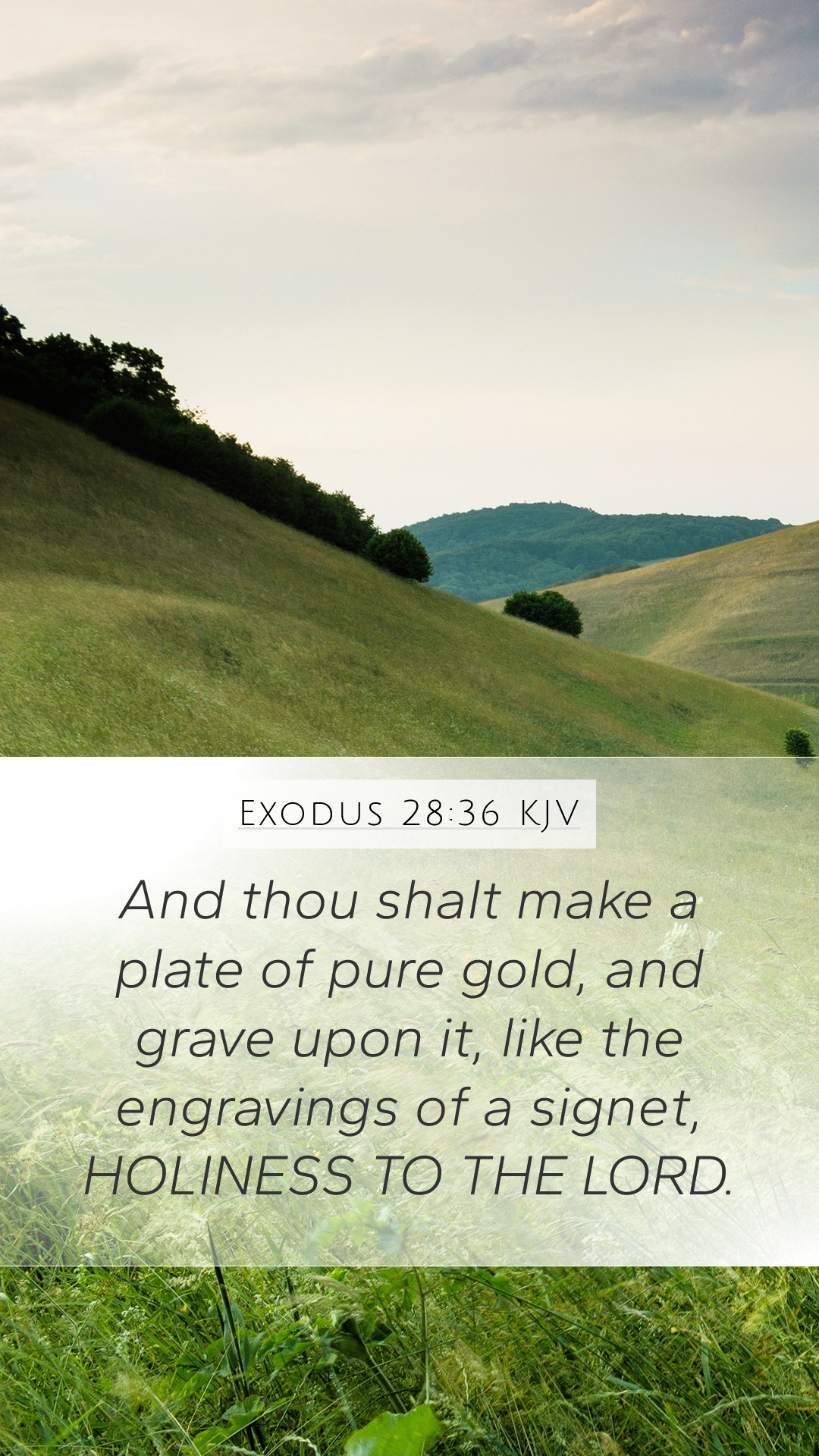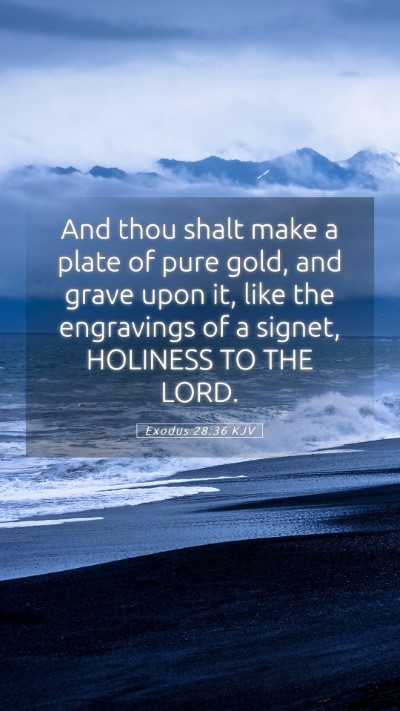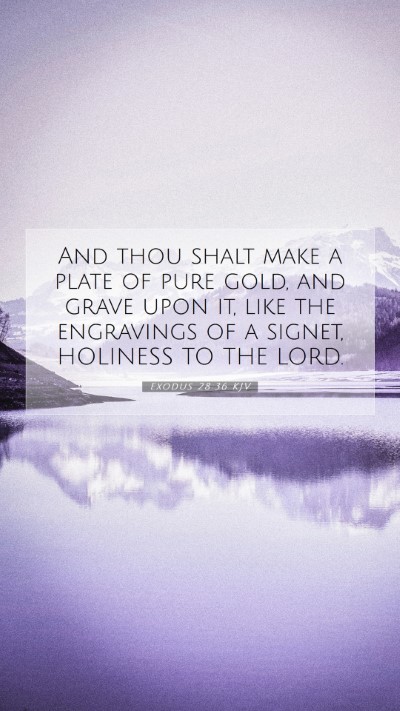Understanding Exodus 28:36
Bible Verse: Exodus 28:36 - “And you shall make a plate of pure gold and engrave on it, like the engraving of a signet, ‘Holy to the Lord.’”
Meaning Behind Exodus 28:36
This verse is pivotal in understanding the holiness and sanctity associated with the priestly garments in ancient Israel. It emphasizes the need for purity and consecration in the service of God, specifically regarding the attire of the High Priest.
Insights from Public Domain Commentaries
- Matthew Henry's Commentary:
Henry explains that the golden plate represents the dedication of the high priest to the Lord. The inscription “Holy to the Lord” signifies that all actions performed by the priest should be in honor of God, reminding both the priest and the people of the sacredness of their worship and duties. The plate is a symbol of the priest's responsibility to bear the iniquities of the Israelites before God.
- Albert Barnes' Notes:
Barnes highlights the significance of gold as a symbol of purity and divine authority. The engravement is compared to a seal, indicating that the priest's office was not only a job but a divine ordination. This concept teaches that worship should be earnest and done with acknowledgment of God's holiness.
- Adam Clarke's Commentary:
Clarke notes that the priests, particularly the High Priest, were to wear this plate as a constant reminder of their commitment to God. The engraving of “Holy to the Lord” serves as a public declaration of the priests' separation from worldly concerns to focus entirely on God's service and the spiritual leadership of the people.
Theological Significance
This verse illustrates the concept of holiness in the worship of Yahweh. The High Priest’s garments, adorned with this inscription, signify that every action must reflect God’s glory. Additionally, it provides insight into how believers are to regard their own relationship with God—set apart and dedicated.
Key Themes in Exodus 28:36
- Holiness: This verse establishes the principle of holiness that is to permeate worship practices.
- Separation: It indicates the separation of sacred duties from secular ones.
- Commitment: Signifies the commitment of the priest to God, illustrating the concept of serving with integrity.
Cross References
- Leviticus 11:44 - Calls for the people of Israel to be holy as God is holy.
- 1 Peter 1:16 - “You shall be holy, for I am holy,” reiterating the call to holiness in the New Testament.
- Exodus 30:30 - Anointing Aaron and his sons, emphasizing their consecration to serve in the sanctuary.
Application for Today
The principles found in Exodus 28:36 have profound implications for modern believers. It calls for personal and communal holiness, serving as a motivation to reflect God’s purity in all areas of life. As believers, the call to be “Holy to the Lord” can transform daily actions, decisions, and relationships, promoting a life dedicated to following God’s will.
Applying the Insights
- Through Bible study tools, one can gain deeper insights into their role in God’s plan.
- Engaging in online Bible study groups can foster a community focused on holiness.
- Utilizing Bible study guides can assist in interpreting the significance of holiness in everyday life.
Conclusion
Exodus 28:36 serves as a rich deep well of meaning when exploring the holiness required in worship and service to God. By understanding its implications through the lens of public domain commentaries, one can obtain valuable Bible study insights that enhance Bible verse understanding and encourage a deeper relationship with the divine.


